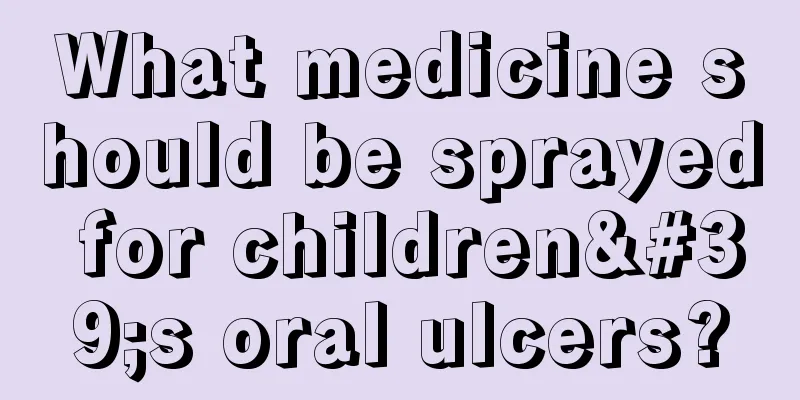Does baby eczema itch?

|
After getting eczema, the child will become very itchy, and cry in the middle of the night and can't sleep. The family will feel very uncomfortable watching this. In fact, the baby will feel itchy after getting eczema, but the child will not scratch. He will just use crying and irritability to express that his body is itchy. It is important to find the cause of eczema and then choose the appropriate and standardized treatment method according to the individual's physical condition. What to do if eczema itches Itch in eczema is a common symptom of eczema and a relatively typical symptom. In addition, it is accompanied by the appearance of skin rashes. After the itching occurs, we can take oral antihistamines to relieve the itching. Currently available drugs include H1 receptor antagonists and H2 receptor antagonists, and both drugs can be used together. For example, drugs such as cimetidine, cetirizine, ebastine, chlorpheniramine, and diphenhydramine can effectively relieve itching. For some severe types of eczema, you can consider topical application of some topical glucocorticoids or oral glucocorticoids to continue the treatment, which have a certain effect on the itching of eczema. What causes eczema? Infant eczema is a common skin disease in infancy. It is an allergic disease and is an acute or subacute eczema that occurs on the head and face of infants. Generally, it can be cured in a short period of time. Stubborn ones often have unbearable itching which cannot be cured for a long time. Most of them can heal themselves after the age of 2, but a few can extend to infancy or childhood, often affecting the physical and mental health of children. Infant eczema is first seen in infants aged 1-3 months. Newborn eczema is also called neonatal eczema. Children with infant eczema are prone to develop other allergic diseases in the future, such as asthma, allergic rhinitis, allergic conjunctivitis, etc. Infant eczema is an allergic skin disease caused by allergies to foods such as milk, breast milk and egg white. It may also be a skin disease caused by genetic predisposition. If parents suffered from eczema when they were young, their babies are also prone to eczema. Eczema is sometimes a dry type, with a small amount of grayish-white bran-like scaling on the small papules. It can also be seborrheic type, with light yellow oily liquid oozing out of small maculopapules and later forming scabs. It is more common on the top of the head, between the eyebrows, beside the nose, and behind the ears, but the itching is not too obvious. There are many reasons that may cause infantile eczema, including: (1) Allergic to the protein in breast milk or to cow’s or goat’s milk, beef, mutton, fish, shrimp, eggs and other foods. (2) Overfeeding leading to indigestion. (3) Eating too much sugar causes abnormal fermentation in the intestines. (4) Intestinal parasites. (5) Exposure to strong light. (6) Irritation from soap, cosmetics, hair fibers, pollen, and paint. (7) When a nursing mother comes into contact with allergenic factors or eats certain foods, the baby will be affected through breast milk. (8) Eczema also has a genetic tendency. |
<<: What medicine should children take for cough and white sputum
>>: Why does a child sleep with his mouth open?
Recommend
Newborn baby with prickly heat on face
When summer comes, babies are most likely to get ...
What medicine is good for children with fever and cold
When summer comes, the most annoying problem is t...
What are the methods to treat myopia in children?
Myopia in children is the most common disease in ...
Why does my child cough in the middle of the night but not during the day?
The child does not cough during the day, but star...
What knowledge do you have about artificial feeding of infants?
Artificial feeding is a way of feeding babies whe...
Why is the inside of the newborn's lips white?
The arrival of a baby will bring great surprise t...
Why do children reach the age of tooth replacement but have not yet changed their teeth?
When children reach a certain age, they will star...
What to do if your child has red and swollen eyes
Sometimes children have red and swollen eyes, whi...
What material is good for baby food bowls
When choosing complementary food bowls and chopst...
Do you know why children snore?
Many people think that snoring is an adult issue ...
Things to note when newborns swim, mothers should know
The most fun time after a baby is born is swimmin...
How old can babies eat kiwi fruit?
Kiwi fruit has a very high sugar content, so it i...
Reasons and solutions for 16-month-old babies not liking to eat
I have a sixteen-month-old baby at home, but what...
What to do if your newborn has hypospadias
Newborn, what a beautiful word. The arrival of th...
What causes black testicles in newborns?
Many parents may find that their newborn boys ten...









